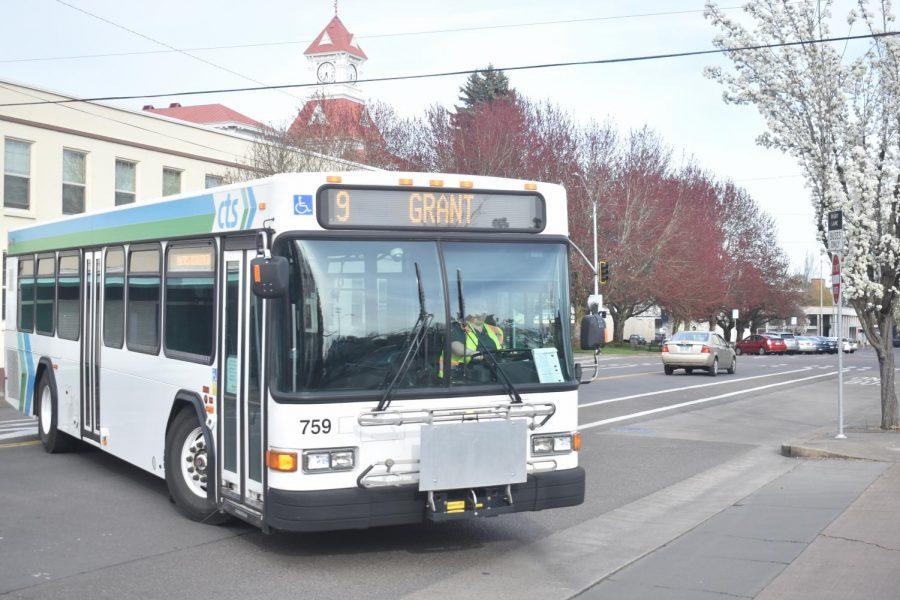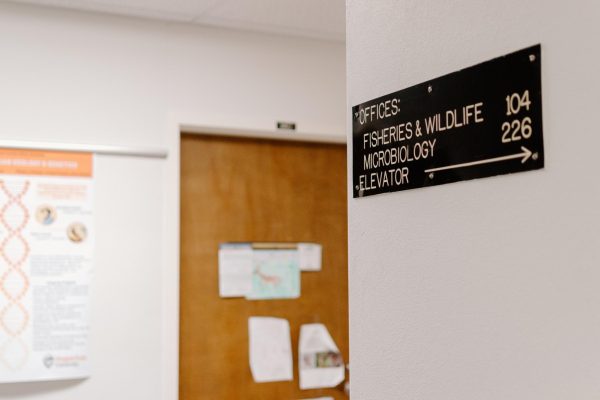Corvallis at risk of losing ‘metro city’ title
April 12, 2021
The Federal Office of Management and Budget proposed an idea in August 2019 to increase the threshold that classifies a city as a metro city; if passed, Crovallis, Ore. will lose its metro city title.
Since the 1950s, in order to be considered a metro city, cities in any state needed only to have a population that exceeded 50,000 people. However, a proposal from OMB recommends that this number be increased to 100,000 people, following population growth in the past 70 years.
With a population just over 58,000, Corvallis will lose its status as a metro city if this proposal is passed. Now, Oregon political officials are pushing against this proposal.
“The designation is purely based on population,” said Patrick Rollens, Corvallis’ public information officer. “Since 1950, urban regions with populations of 50,000 or greater qualified as Metropolitan Statistical Areas. Various other federal and state agencies adopted this framework to help guide the way they distribute grants and other funding sources.”
If Corvallis does lose its status as a metro city, it is possible that the city could lose some of its federal financial resources. Rollens said that Corvallis currently receives funding for transportation—such as street infrastructure improvement and maintenance—as well as public transportation. This funding could be impacted if Corvallis is no longer a metro city.
“Generally, cities within an MSA have greater access to state and federal grants and other sources of funding,” Rollens said. “This aligns with most agencies’ goal of reaching as many people as possible with the resources they are distributing.”
However, the full effects that this proposal could have on Corvallis is unknown. There’s no guarantee that the proposal will be accepted but, even if it is, there are only general ideas about how it could impact Corvallis.
“Corvallis losing its MSA designation is at a minimum a hit to our city image or ego,” Biff Traber, mayor of Corvallis, said. “Beyond that, things become very unclear since much of the use of the MSA is rules defined by a wide range of federal agencies and programs. The department that is making this change claims that there is no intent to interfere with the current programs.”
While the impacts of this proposal are unknown, on March 19, Oregon Senator Jeff Merkley joined nine other United States Senators in a letter asking the OMB to reconsider these proposed changes.
“While OMB has stated that these designations are established solely for statistical purposes and are not intended to be used in program funding formulas, several federal programs and agencies rely on these designations for the allocation of funding and provision of services,” the letter said. “For example, the statutory authorization for the Community Development Block Grant explicitly defines a metropolitan area as a standard metropolitan statistical area established by OMB.”
The CDBG program is one that Corvallis itself participates in that could be affected if Corvallis is no longer a metro city.
“Corvallis is currently an entitlement CDBG city which means we receive direct annual funding for our CDBG low-income housing and services programs,” Traber said. “All of this funding, other than a small administrative fee, is passed through to local agencies providing housing and services to low income members of our community. The connection is expressed in the Housing and Urban Development rules which tie our status with HUD to being an MSA.”
The letter also said that, according to The United States Postal Service, almost 16 million people have changed addresses due to the pandemic. This is an increase of nearly 4% from the previous year.
“This significant increase in people moving as a result of the pandemic demonstrates that population data based on the calendar years of 2020 or 2021 is likely to be misleading and inaccurate in predicting long-term trends about where Americans will choose to live,” the letter said.
The letter closed by asking, “given the anticipated negative impact of this proposed change and the inability to accurately track where Americans will choose to permanently settle following the coronavirus pandemic,” that the proposal be reconsidered. They asked that, instead, the impact of such a change on federal resources be evaluated for future proposals.
Jeff Merkley was unavailable to provide further comment on his support for this letter, but State Communications Director Sara Hottman gave insight to why Merkley joined in support with other senators.
“Sen. Merkley joined the letter because local leaders in Oregon expressed concern to him about what the designation change might mean for the federal resources they receive,” Hottman said. “[Merkley and the other senators who joined him] want OMB to establish a comprehensive process to engage stakeholders, and to fully evaluate the impact that any changes may have on distribution of federal resources and services.”
The public comment period for this proposal was recently closed on March 28, but there is no current specific public deadline for the decision about whether or not it will be accepted.

























































































































